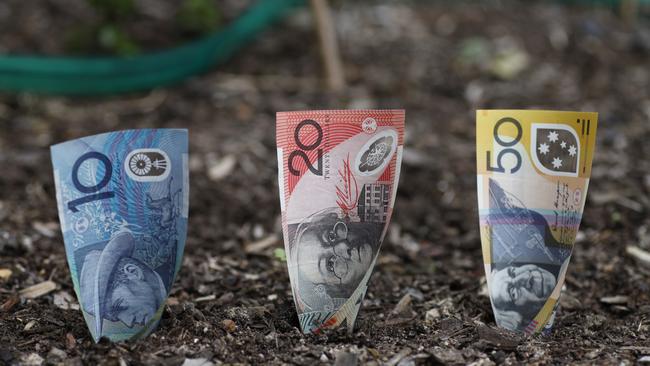Why franking changes could hamper our smaller companies

In short, the federal Labor Party has proposed a legislative change that will limit the ability of companies to pay franking credits to shareholders. When announced late last year, Financial Services Minister Stephen Jones said: “Dividend imputation is there to give companies a way of allocating tax credits to their shareholders when they distribute franked dividends; it is not there for corporations to exploit the tax treatment, at taxpayer expense, of off-market share buybacks.”
The ‘‘exploitation’’ that the government is looking to clamp down on revolves around companies who pay franking credits to shareholders under certain circumstances such as through special dividends.

Ordinarily, corporate tax is paid at a rate of 30 per cent on company profits. If the profits are paid out as a dividend, the tax liability of the dividend transfers from the company to the individual shareholder. In other words, if a shareholder receives a $70 fully franked cash dividend, the shareholder will need to declare taxable income of $100 and receive a tax credit of $30. This represents the tax the company paid to the ATO on the profit.
If the taxpayer is on a marginal tax rate of more than 30 per cent, they will pay top up tax on the dividend. And conversely, if the fully franked dividend is paid to a SMSF retiree enjoying a 0 per cent tax rate, the full 30 per cent franking credit is paid back to the retiree in cash by the ATO after the SMSF annual tax return has been lodged.
As reader Jack pointed out in James Kirby’s article on the issue last month: “A franking credit refund is not a refund of tax never paid; it is a refund of income never received.”
As a company generates profits and pays 30 per cent tax, the total amount of tax paid is recorded in what is known as the franking account. Each year, company management decides how to divide up the profits. In most cases, part of the profits are reinvested into the business while part of the profits are paid out to shareholders via a dividend.
ASX blue chips such as the major banks and mining companies usually pay out between 60 and 70 per cent of their profits each year to shareholders.
And here lies the problem: for a company that has paid, say, 70 per cent of its profits to shareholders as a fully franked dividend, their franking account still has a balance as the franking credits were only utilised to pay the 70 per cent of profits as a dividend to the shareholders. Where profits are reinvested, the franking credits remain in the company’s franking account – that is, the tax on the 30 per cent of profits that were reinvested.
Over a longer period, the franking account can build up and create an issue for the company: how can it pay out the accumulated franking credits? One way has been to do an off-market buyback of shares. As part of the terms of the buyback, the company offers a fully franked dividend. This allows the company to clear out their franking account and pass the franking credits through to shareholders.

The government believes this is a loophole and companies should not be able to provide franking credits in this manner to shareholders, noting on-market share buybacks do not enjoy the same franking credit benefits.
Mr Jones has said the government is closing “an unintended loophole that allows large corporations to effectively gain a taxpayer subsidy for off-market share buybacks”. However, normal dividend payments will be able to continue with no changes – that is, no change to the fact that companies can still issue dividends that attract franking credits.
In 2018 BHP completed a $7.3bn off-market buyback at a price of $27.64, which consisted of a $0.38 per share capital component plus $27.26 per share fully franked special dividend. Even though the share price was $32.13 at the time – which meant shareholders were selling shares back to BHP for less than the market price – after the benefit of the franking credits were applied, the buyback price ended up being closer to $40 per share. That’s the power of the franking credit in action.
Moving forward, if the proposed changes go through, these types of off-market share buy backs will not occur any more. And there will be a complex and extensive ripple effect throughout the corporate world. One example noted by Geoff Wilson: “Small companies need capital to grow and under the proposed changes, small companies that earn profit, pay tax in Australia and raise capital will have fully franked dividends taken away from them and therefore, significantly increase the cost of capital.”
It is always unnerving when the government starts to unwind investor tax benefits, particularly in an area that has been traditionally so contentious. Concurrently, the proposed changes to super are also worrying, not just due to the fact that the changes will make it less appealing for people to strive to be self-funded in retirement, but also the reputational damage.
Where the goalposts are moved people vote with their feet.
Fewer people will buy ASX-listed shares if franking credit rules are restricted and fewer people will accumulate money for retirement via super if the taxation benefits are reduced. Although there will be some immediate tax savings for the government if these measures are implemented, 10 to 20 years down the track, with less people saving for retirement, more people will be relying on the Centrelink age pension, putting even more pressure on the budget.



Fund manager Geoff Wilson calls it “double taxation by stealth” while Self Managed Super Fund Association CEO Peter Burgess spoke this week about “situations (that) would expose the shareholders to double taxation”. So should investors be concerned about what look like minor changes to the franked dividend regime?